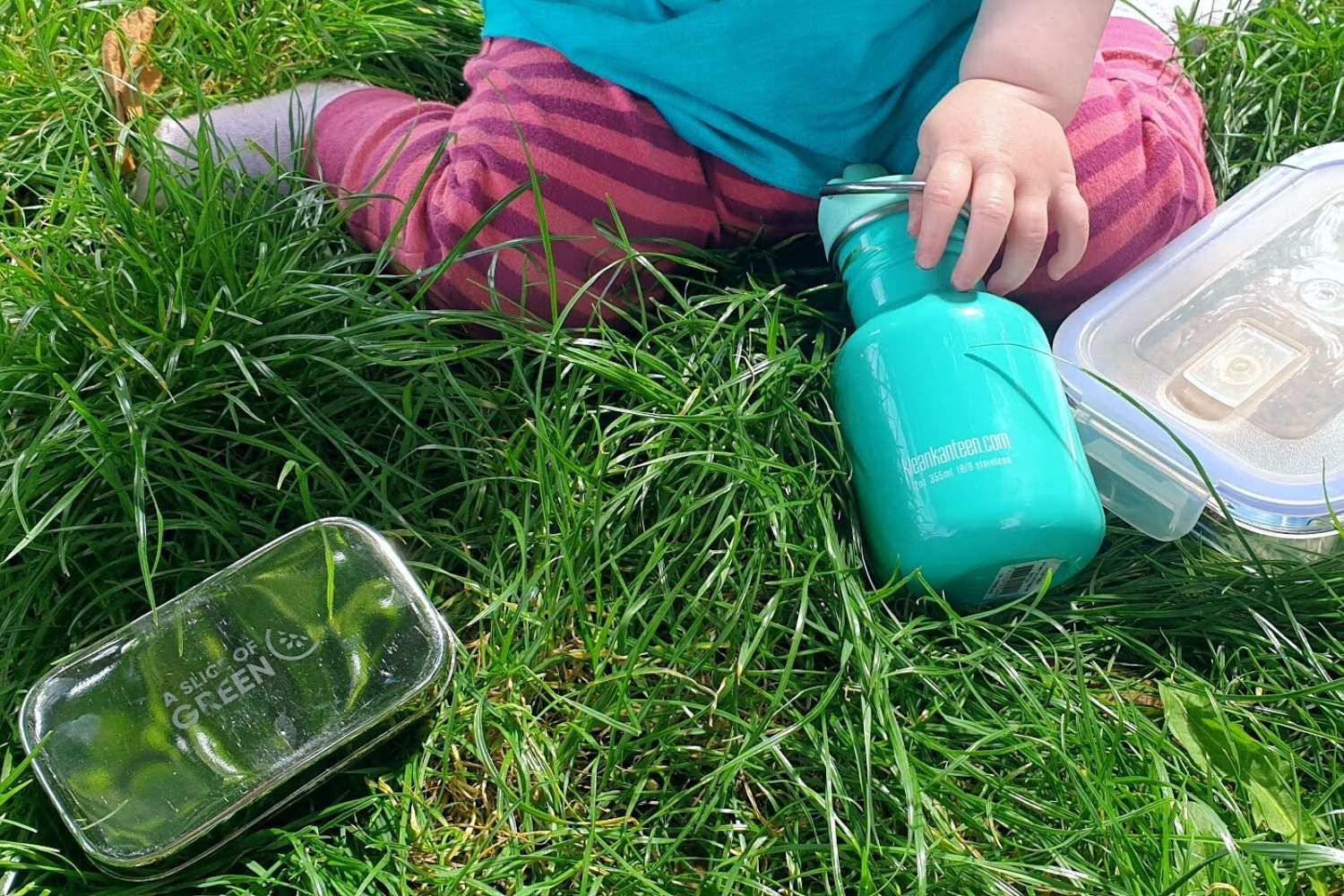
A zero-waste lifestyle can seem impossible when you have kids.
The “I keep my trash in a jar” stories and Instagram’s high standard of filtered perfection can make any person run in the opposite direction.
I’m here to tell you that isn’t what eco-friendly living is about, at all.
While zero waste is the name of the movement, “low waste” is a more accurate term.
Do you have to have a home full of bamboo and glass?
Absolutely not.
Do you have to make 50 expensive eco-conscious swaps?
No way!
The wonderful thing about a low waste lifestyle is you can do it in the way that works best for your family, your circ*mstances and your individual values.
In this post, I’m going to help you get into a zero-waste mindset by explaining the key problems and actionable solutions that don’t include buying anything.
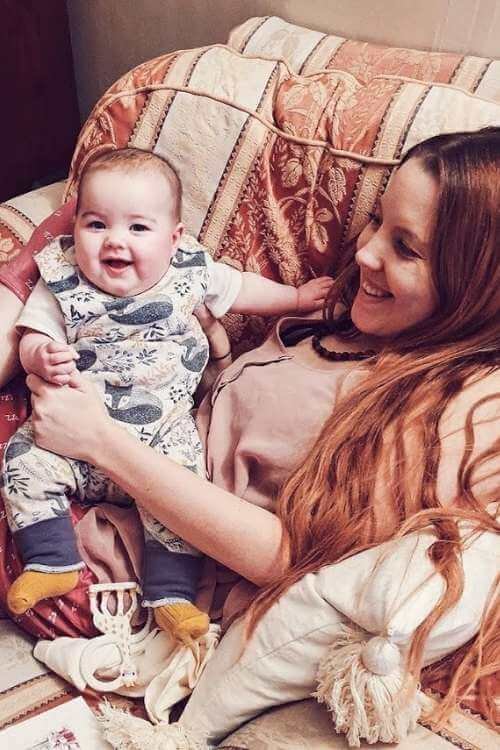

why are adverts problematic?
The kids are finally asleep so you sit your butt down for some well-deserved procrastination.
You're scrolling through Facebook when a sponsored ad shows you a top in a colour you were thinking about two days ago (how does it know?)
You click on it because there's no harm in having a look, right?
10 minutes later there are 3 items in your basket (you aren’t too fussed about the last one, but you hate paying those pesky delivery charges).
They know exactly how to get you, don't they?
Then there are the adverts that specifically target parents’ emotions. They tap into your vulnerabilities and make you question yourself.
Are they sleeping enough? Could their eating be better? Should they be doing that?
Having a new baby is a huge change and an immense responsibility. Your body is full of hormones and you just want to give your child the best life possible.
You may buy whatever they are selling without a second thought because consumerism is ‘normal’ and it’s everywhere.
Why is an eco-friendly lifestyle challenging for parents?
Adverts are an issue regardless of whether you’ve got children or not, but once you do have kids, you have less time, less energy and less money to buy all the extra stuff you need.
As a first time mum or dad, you are constantly worrying and just want to do what is best for your baby.
Not to mention the extreme sleep deprivation. It’s not surprising disposable products became as popular as they are.
So when the manipulative adverts come out to play, bragging about how their product can solve all your problems (that they really shouldn’t know about but somehow they do) you are more likely to throw your money at them.
In my opinion, it’s wrong to exploit new mothers who are vulnerable, exhausted and more susceptible to adverts - but what do I know?
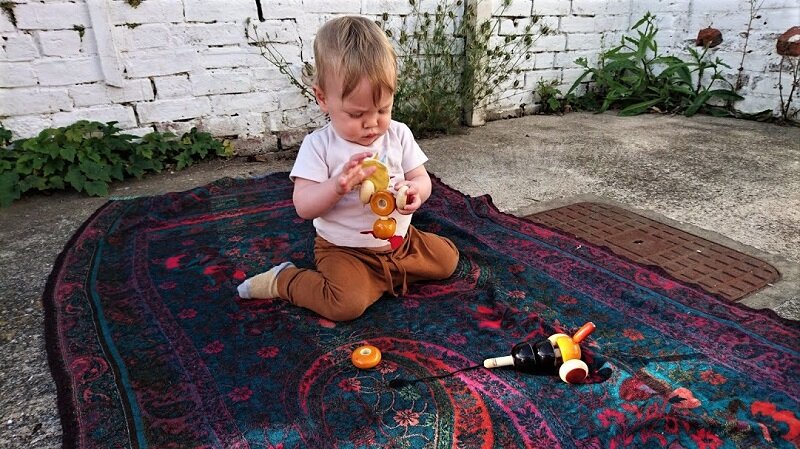
Why is modern-day consumerism such a huge problem?
Buying “stuff” isn’t the problem, it’s the excessive, mindless nature of our spending that is causing so many problems.
It isn’t a coincidence that the corporations we buy from are owned by billionaires (usually male and white), yet the people (usually BIPOC) who create their products live in extreme poverty.
We are completely disconnected from our purchases (which is exactly what big companies want). There is no way of finding out who made that top that keeps popping up in your sponsored ads.
Why are supply chains so secretive?
Corporations, like Amazon, supermarkets, electronics, and high-street fashion, are only interested in profit and it would destroy their sales if they showed us the conditions of the employees in their supply chain.
Yet it’s so normal to not even think about it, let alone question it. There’s even slave labour in the UK (usually as a result of human trafficking) making clothing for cheap, online fast fashion brands.
It’s not a secret, the government are aware of social and environmental issues, but a lot of their funding comes from billionaires and unethical corporations.
These mega-rich corporations have separated us from everything we buy, from the food that we eat to the toys our kids chew on, in the most extreme and appalling ways.
One of the biggest problems with consumerism is that people don't realise there is a problem with consumerism.
Here are 10 simple tips to get you started, but don’t forget to check out my ultimate guide to sustainable parenting to which goes into more depth than reducing your family’s waste.
Tap to pin this to your eco-friendly Pinterest board:
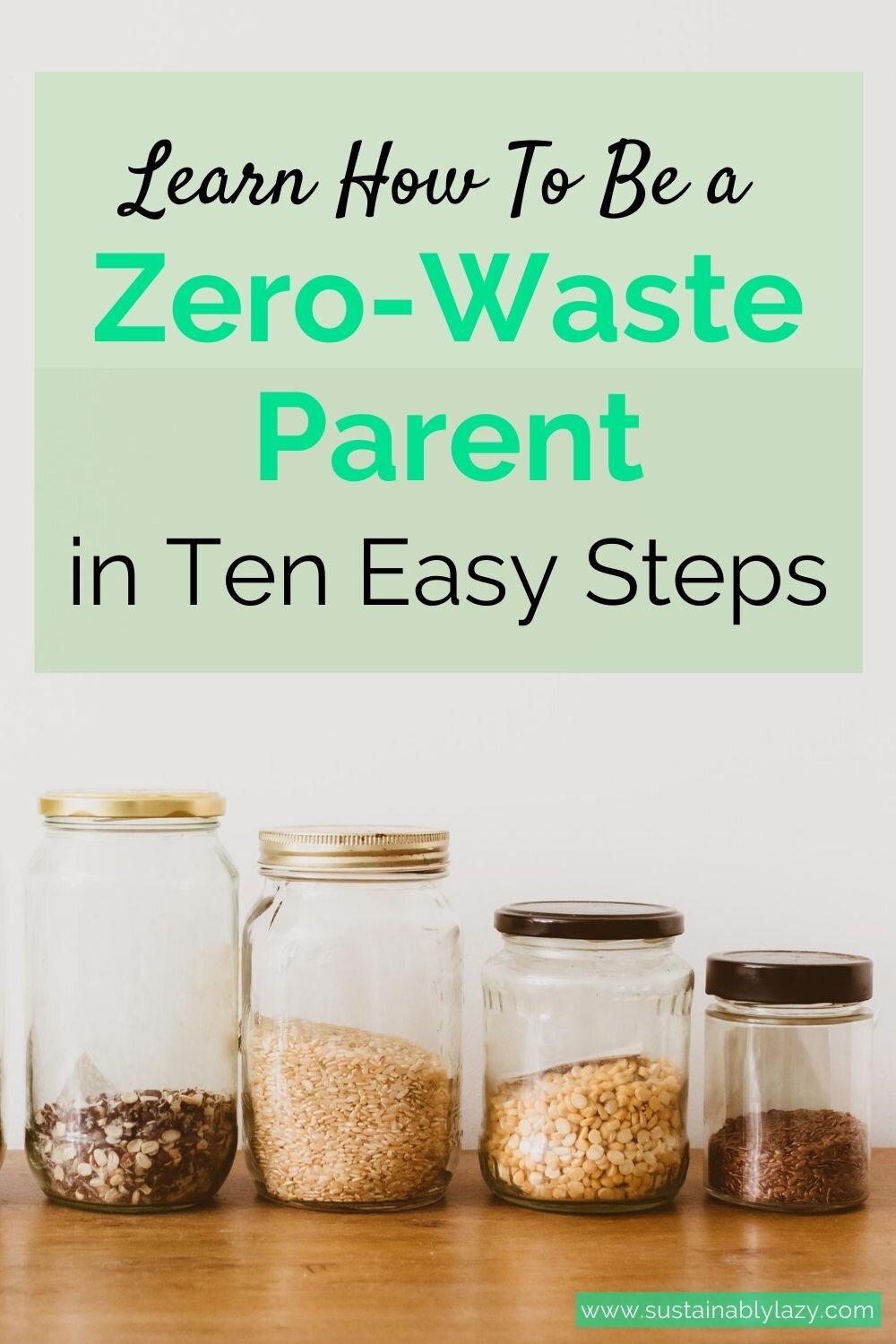
How to become a zero-waste parent in 10 simple steps
1. Understand the goal of the zero-waste movement: a circular economy
I’m going to keep this short and sweet because anything with the word ‘economy’ makes my worn-out brain crave sleep. However, you need to know this.
A circular economy is the whole point of the zero waste movement.
It demonstrates how we can keep creating the products we need without taking the planet’s resources, or throwing them into the sea when we are done.
If you are a visual learner (like me!) then hopefully my diagram (below) helps you understand how it can be achieved.
Although zero-waste is one small area of sustainable living, it does have a purpose. It is a slow change, but the hope is that individual action and activism will slow profits and in time encourage corporations to get on board and face up to their responsibilities.

2. The zero-waste hierarchy - the five ‘R’s
The infamous zero-waste triangle is a basic guide to help you understand how to reduce your consumption to avoid it going into landfill.
We live in a throwaway society where recycling is a bit of a delusion. The triangle helps you understand where you should focus the most effort: more focus on reducing what you buy, less on recycling.
Refuse
Reduce
Reuse
Rot (compost)
Recycle
There are several other versions that also include ‘repurpose,’ ‘resell’ and ‘repair.’ They all have the same purpose, to help remind us we don’t have to accept everything, and we don’t have to throw everything away if it becomes damaged.
3. Refuse: pregnancy
Refuse is definitely my least favourite of the entire triangle, but it’s at the top for a reason.
I prefer to use the word ‘prevent’ instead as it seems less rude (and there’s the British in me coming out).
When you are pregnant, you will likely be surrounded by an excited, happy family all desperate to go baby shopping. Once your baby is born, you will probably get a lot of gifts from people who care too (even friends of friends you’ve never met!). Unfortunately, a lot of the presents are either plastic, created using slavery (unknown to them), doubles, or completely useless to you.
Giving gifts comes from a place of love and kindness, so it is important to approach this topic with compassion. It’s also very lucky to be surrounded by loving, generous family and friends who want to help.

There are a few actions you can take to point people in the right direction:
If you feel comfortable doing so, create a registry (or a list) that people can buy off if they wish. This is particularly useful for baby showers.
You could send a friendly email, or a personalised card, explaining your eco-friendly wishes and preferences (this could be that you don’t want any gifts at all, or would like everyone to buy second-hand items only).
You could ask everybody to buy you a cloth nappy to help you build your stash.
It’s also worth mentioning cards. I got about 50 cards when my son was born and 95% weren’t recyclable due to the glitter and foil.
You can try your hardest but the chances are high that you will still receive gifts that aren’t sustainable.
In this case, I would accept the gift and thank them for their kindness. Either use the gift or donate it (I got given disposable nappies and lots of Johnson’s products I wasn’t going to use. Items like this are great for your local baby bank).
4. Refuse: children’s gifts
Special occasions come with the same problems as pregnancy: people want to express their love through buying stuff and you end up with a mountain of plastic.
A bit of planning can help with ‘prevention’ in this area.
I’ve been very lucky and my family understand my concerns about reducing our environmental impact, however, there are plenty of people that have been met with resistance in this area. If that’s the case, I’d keep trying (gently), but, as the saying goes, pick your battles.
Tips for low-waste holidays:
Ask for experience gifts (so the family member can make memories with your child)
Ask for second-hand books at birthday parties as people may feel too awkward showing up with nothing)
Ask for contributions for a large gift you’re saving up for (an anonymous money box will take the pressure off), once at a party, we asked for voluntary donations towards swimming lessons
Make a wishlist and let people choose from it
Ask for homemade instead of packaged chocolate and sweets

5. Reduce: Excessive baby products
Avoid falling for marketing tactics and buying excessive amounts of baby products. Corporations know parents are exhausted and they use that to manufacture ‘solutions’ which are usually not necessary.
When my son was born, he had five different types of beds. Yep - five! And guess what? He only wanted to sleep on me.
You will be told by adverts, by other mums, by lists of ‘essentials’ on Google, that you need to buy dozens of products to get your baby to sleep and to give you free time to do housework etc.
Not only does this give parents unrealistic expectations, it encourages them to put their babies down and when they get upset parents often wonder what they are doing wrong, or why their baby is unhappy.
If you’ve read about the fourth trimester, you will understand that a baby desperately needs to be close to its parents. I’m not saying you should never put your baby down, but honestly? Most of these products to entertain your baby are completely unnecessary.
If you do want to try something (and I completely understand why you would), you can buy most of it second-hand anyway.
6. Reduce: food waste and packaging
With babies, people tend to do purees or baby-led weaning.
I totally get why people use pouches or jars - being a parent is exhausting and I’m not going to pretend I didn’t have an emergency jar in the cupboard for those rough days.
One thing I learnt from doing purees with my son (who was premature and on them for ages):
Pre-made baby food is really not what it’s cracked up to be.
Not only are pouches expensive, but they also have less nutrition and make nappies significantly more gross #aintnobodygottimeforthat.
If you’re as tragic at cooking as I am, then meal planning, batch cooking and freezing your purees and/or finger food will make your life much easier.
So will giving them the same food as you eat (which also forces you to eat healthier).
(Note - I’m not in the business of mum-shaming and I think guilt is a waste of energy so don’t worry if you need pouches or formula or disposables).

Once your kids are older, the following tips can help reduce waste:
Get them involved in baking their own snacks. This reduces plastic and ensures you know what ingredients are in there
Save leftovers for another day (less cooking, wahey)
Make your own ice lollies (less sugar and more nutrition)
Take them to the refill shop, the farm or the greengrocers (wherever you get your food) so they begin to learn where it comes from
Grow your own fruits and veggies with them. You don’t need a garden, I currently have a giant courgette plant on my living room window! Strawberries and herbs can be grown inside too
7. Reuse: second-hand shopping and swapping
My best zero waste tip for parents is to buy everything you can second-hand (unless it’s a safety issue, like car seats).
There are 600,000 babies born a year in England (and 4 million in America). That’s a ridiculous amount of new stuff being manufactured and bought every year.
Before buying new:
Borrow off friends
Accept hand me downs
Get down the charity shops
Get on eBay, Gumtree, or Facebook Marketplace
Setup toy swaps with your friends
Save clothes for future kids
Buy second-hand school uniform
Use your local library as this financially supports authors
You can shop second-hand in Oxfam’s online store and help end poverty at the same time.

8. Reuse: choose eco-friendly, reusable products
There are some items that make a huge difference to the planet (and your purse) in the long run. It is definitely worth thinking about the following if you haven’t already:
9. Repurpose: arts and crafts
Repurposing materials from around your house is a great way to avoid sending more waste to landfills or recycling.
You can do this for all kinds of things (diy Montessori toys are another favourite of mine), but I’m going to focus on arts and crafts right now.
The majority of kids love being messy and many enjoy being creative too.
Rather than taking the planet’s natural resources to fulfil these needs, why not raid the recycling bin?
If you’re reducing your plastic, you’re likely to see an increase in cardboard. Rather than encouraging the destruction of trees, get your child to paint that box, or those loo roll tubes. Giving them various bits each week will encourage them to get more creative than they would be with a sheet of A4 paper.
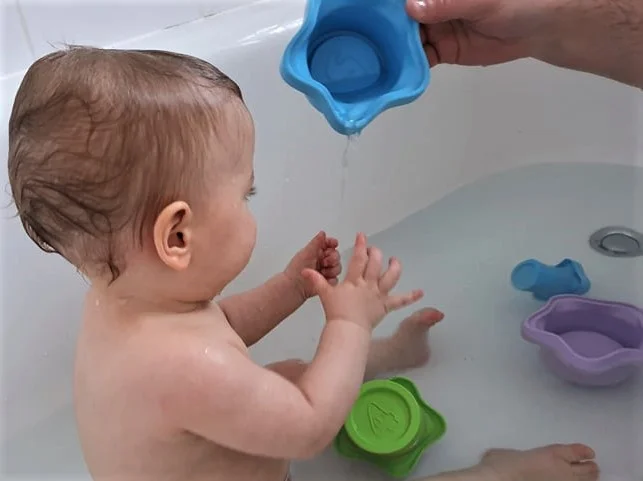
10. Rot and recycle
One way to make composting and recycling a little more bearable is to get your kids involved too. This can be done from a young age as toddlers are so interested in everything.
Let your child put the veggie scraps and peels in the compost bin (it’ll be more exciting when it finally turns to compost)
Involve them in organising the Terracycle before you drop it off
Get out on the street and watch the bin men empty those wheelie bins
Go on litter picks with your children to help them clear up the community.
Letting your children be involved, helps them understand that throwing away doesn’t exist - your litter goes somewhere.
Hopefully, you found this helpful.
What steps have you taken to reduce your family’s waste?
If you found this post informative, please tap the share button below. As a work at home mum who is boycotting Amazon and avoiding annoying pop-up ads (the usual ways to make money from your website), every share means the world to me. You can also support my content by buying me a coffee or following me on Instagram. Thanks for being here - Sophie <3
Featured
Which Type of Shampoo Bar is Best For Your Hair
The Ultimate List of Plastic-Free Swaps For Your Bathroom
20 Sustainable Alternatives to a Plastic Kitchen Sponge
Everything You Need To Know About Natural, Reef Safe Sunscreen
75 Ways To Be More Sustainable On A Budget
How to Successfully Transition to a Shampoo Bar With Hard Water
Why Are Workers and Consumers Boycotting Amazon?
Why Is Zero Waste And Sustainable Living Important - A Beginners Guide
Create a Low Waste, Minimalist Bathroom in Ten Simple Steps
Parenting, Guides
Sophie
Plastic-Free, Ethical Parenting, Guides, Pregnancy
1 Comment